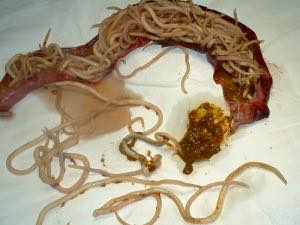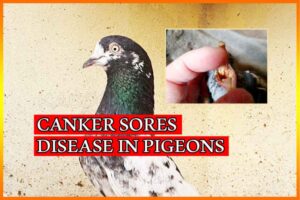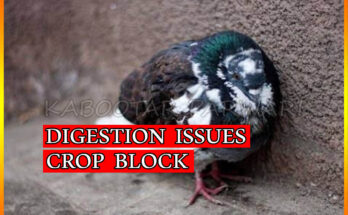Deworming in Pigeons: When your birds eat and drink good enough but there health is not improving then you should start deworming your pigeons. There are different type of worms in birds. Most common three worms found in pigeons today are roundworms, hair worms and tapeworms.
Pigeon deworming is important for several reasons. Just like any other animal, pigeons are prone to parasitic infestations, including worms. These worms can reside in the bird’s intestinal tract and cause various health issues if left untreated.
Deworming helps to eliminate these parasites and prevent their negative impact on pigeon health. Parasitic worms can affect the bird’s overall well-being by compromising their immune system, causing nutritional deficiencies, and leading to weight loss. Moreover, severe infestations can even result in organ damage and death.
Pigeon owners should regularly deworm pigeons kept in captivity, particularly those bred for racing or show purposes. These birds often live in close quarters, facilitating the spread of parasites. By implementing a deworming schedule, pigeon owners can maintain their birds’ health and prevent parasites from spreading within their populations.
Symptoms of Worms in Pigeons:
- Weight loss: Pigeons with worm infestations may experience unexplained weight loss despite a regular appetite.
- Poor growth or stunted development: Young pigeons infected with worms may not grow at the expected rate compared to their healthy counterparts.
- Diarrhea: Infected pigeons might have loose or watery droppings more frequently than usual.
- Poor feather quality: Pigeons suffering from worm infestations may exhibit dull or disheveled feathers, as parasites can affect their overall health and nutrient absorption.
- Reduced activity or lethargy: Infected pigeons may appear less energetic and show decreased interest in regular activities.
- Increased thirst: Worm infestations can sometimes lead to increased water consumption in pigeons.
- Visible worms in droppings: In severe cases, you may notice adult worms or worm segments in the pigeon’s droppings.
Round Worms in Pigeons
Roundworms are a common parasite that can affect various animals, including pigeons. Roundworms, also known as ascarids, are intestinal worms that can cause health problems in pigeons if left untreated. These worms can be transmitted through the ingestion of contaminated food or water, or through direct contact with infected feces. In pigeons, roundworm infections can lead to reduced appetite, weight loss, poor feather condition, and gastrointestinal disturbances. If you suspect your pigeons may have roundworms, it’s best to consult with a veterinarian who can provide an accurate diagnosis and recommend appropriate treatment options.
Hair Worms in Pigeons
Also known as threadworms, eggs are passed in feces, larvate in 1 week or longer, and are picked up from contaminated environment directly by new host.

The Female begin to produce eggs and further contaminate the environment in 2- 3 weeks. Lightly infested birds may show symptoms of anorexia or decreased appetite with weightless. Heavy infestations may result in illness or death due to emaciation, dehydration and anemia.
Tape Worms
Rallietina and Aporina (Taenia) delafondi are the most common tapeworms in pigeons. Feather louse has been suspected. Laziness, watery or mucoid droppings, weakness and leg paralysis have been reported.
Best Medicine For Pigeon Worms Treatment
- Levamisol (13.65% solution) dosed at 100mg/gal drinking water is very effective for roundworms, but not effective for stomach or tapeworms.
- Mebendazole is a fairly safe wormer that is effective against most worms except tapeworms. For all birds, it can be used as 0.5 teaspoon/gal drinking water for 3-5 days.
- Fenbenzazole at 10mg/kg once daily for 3 days shown 99% effective in removing roundworms and hairworms. (not recommended to use in molting season)
Deworming in Pigeons – Some Products
- Zental
- Vermox (not to use in moulting season)
- Oxafax
- Combi-Worm (All worms) (Global)
- Belga-Wormac (Hair & Roundworm)
- Wormmix (Hair & Roundworms) (DAC)
- Worm-Ex (Hair & Roundworms) (Pantex)
Deworming in Pigeons Expert Opinion & Advice
Deworming in Pigeons – I frequently encounter cases of pigeons having tape-worms. The bird becomes thin and tired-looking, with dull and sunken eyes. It also shows an abnormal appetite and lacks its usual energy for flying. By closely observing the bird, you can often notice the tape-worm protruding from its rear. I have removed tape-worms measuring three to four feet in length from pigeons. Additionally, there are other small worms and parasites that can affect them.
The most effective treatment I have found for worm removal is to give the bird a 5-minim capsule of male-fern oil on an empty crop. About two hours later, I administer a dose of castor oil, occasionally purging with a small amount of sulphate of magnesia. This treatment has shown great results, as some affected birds have gone on to perform well, and the worms have not reappeared.









One Comment on “Why Deworming in Pigeons Important ?”